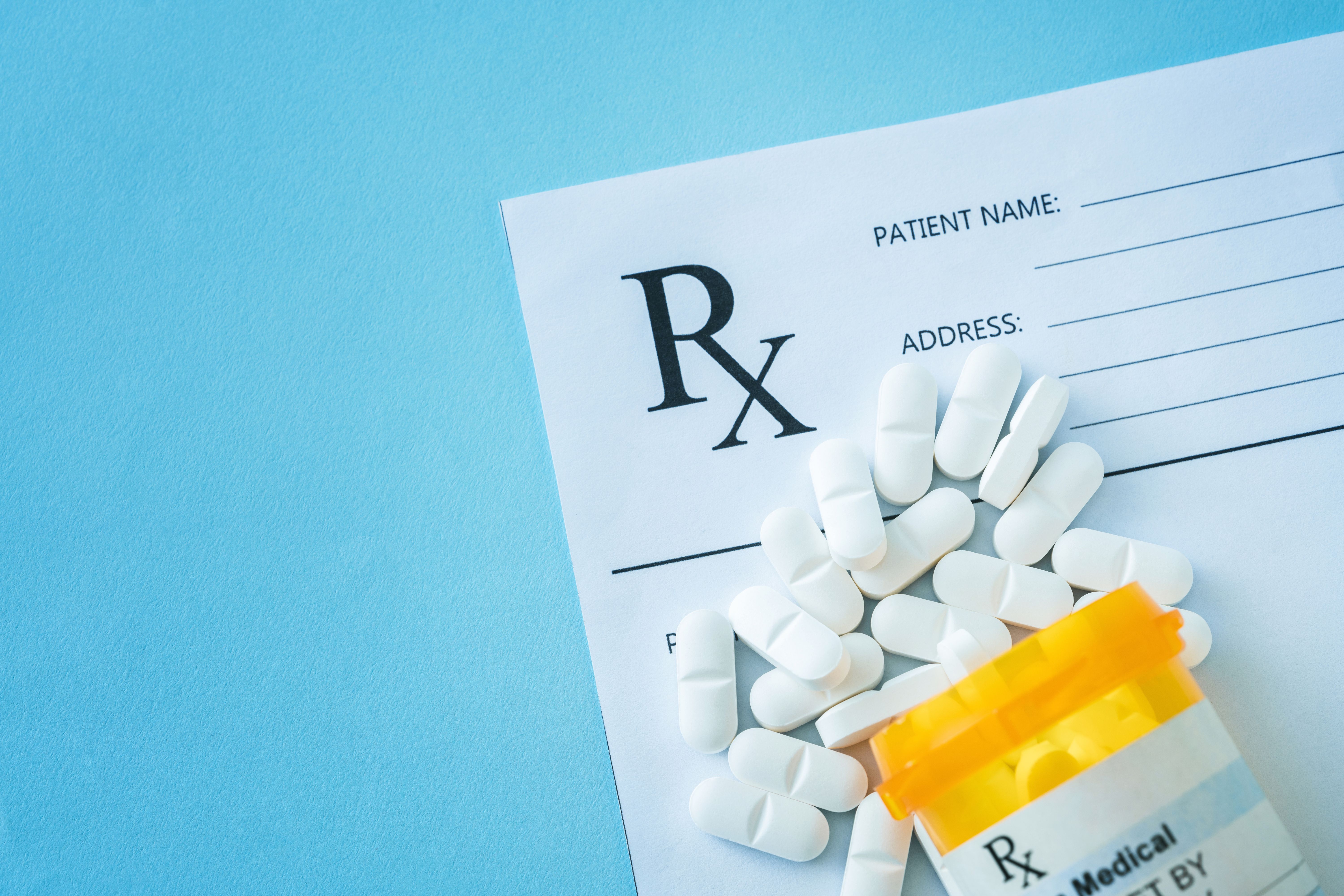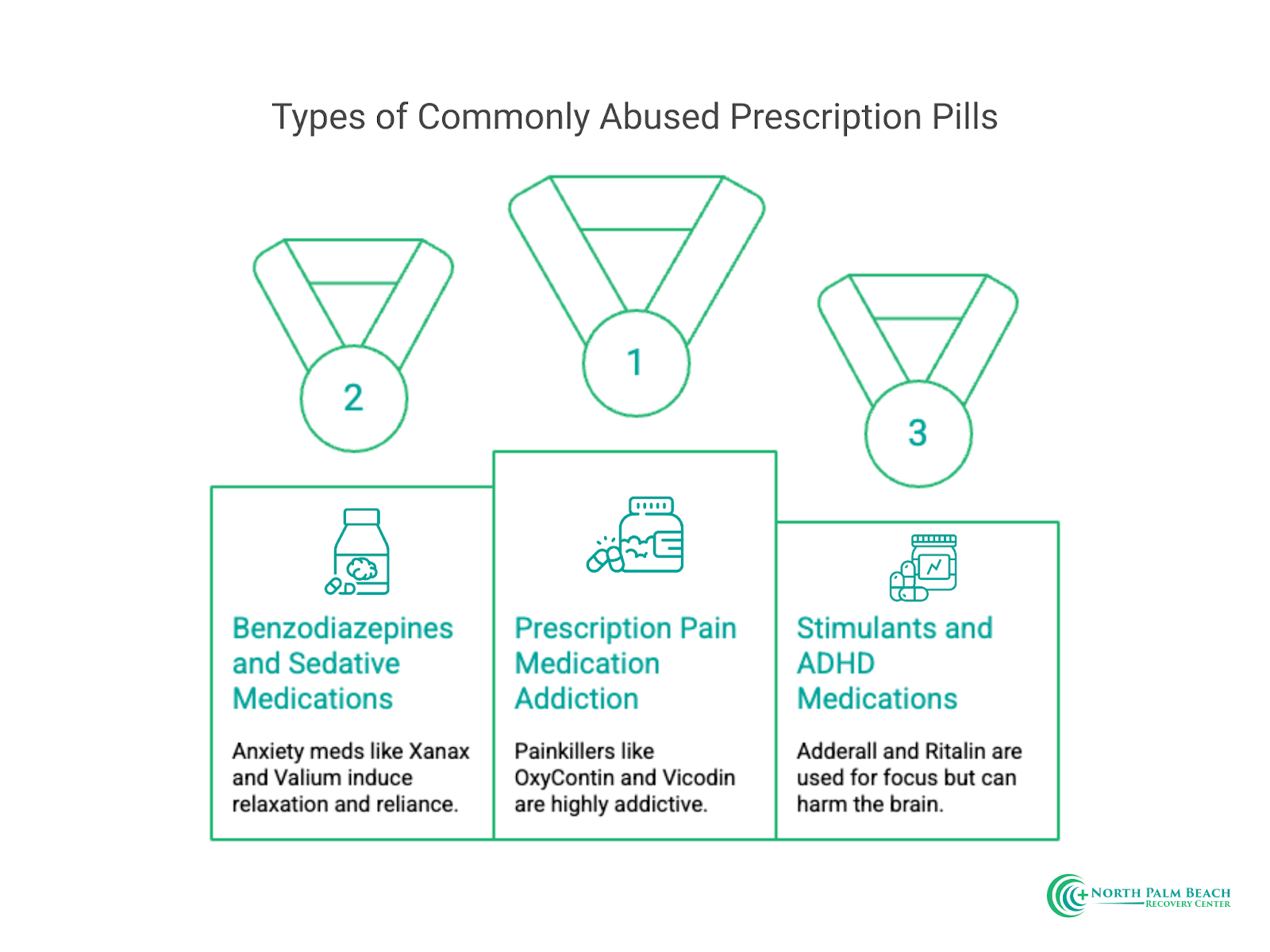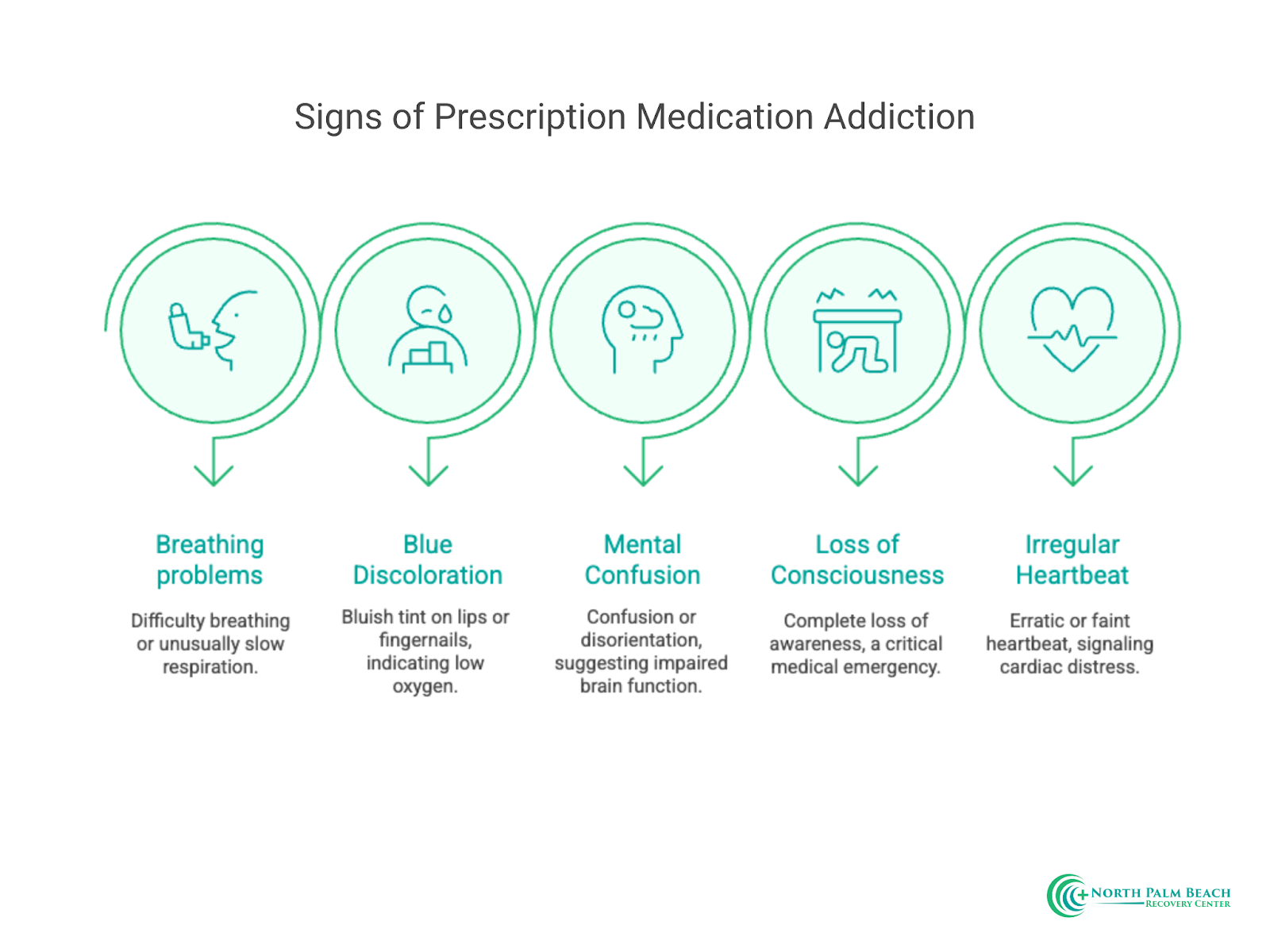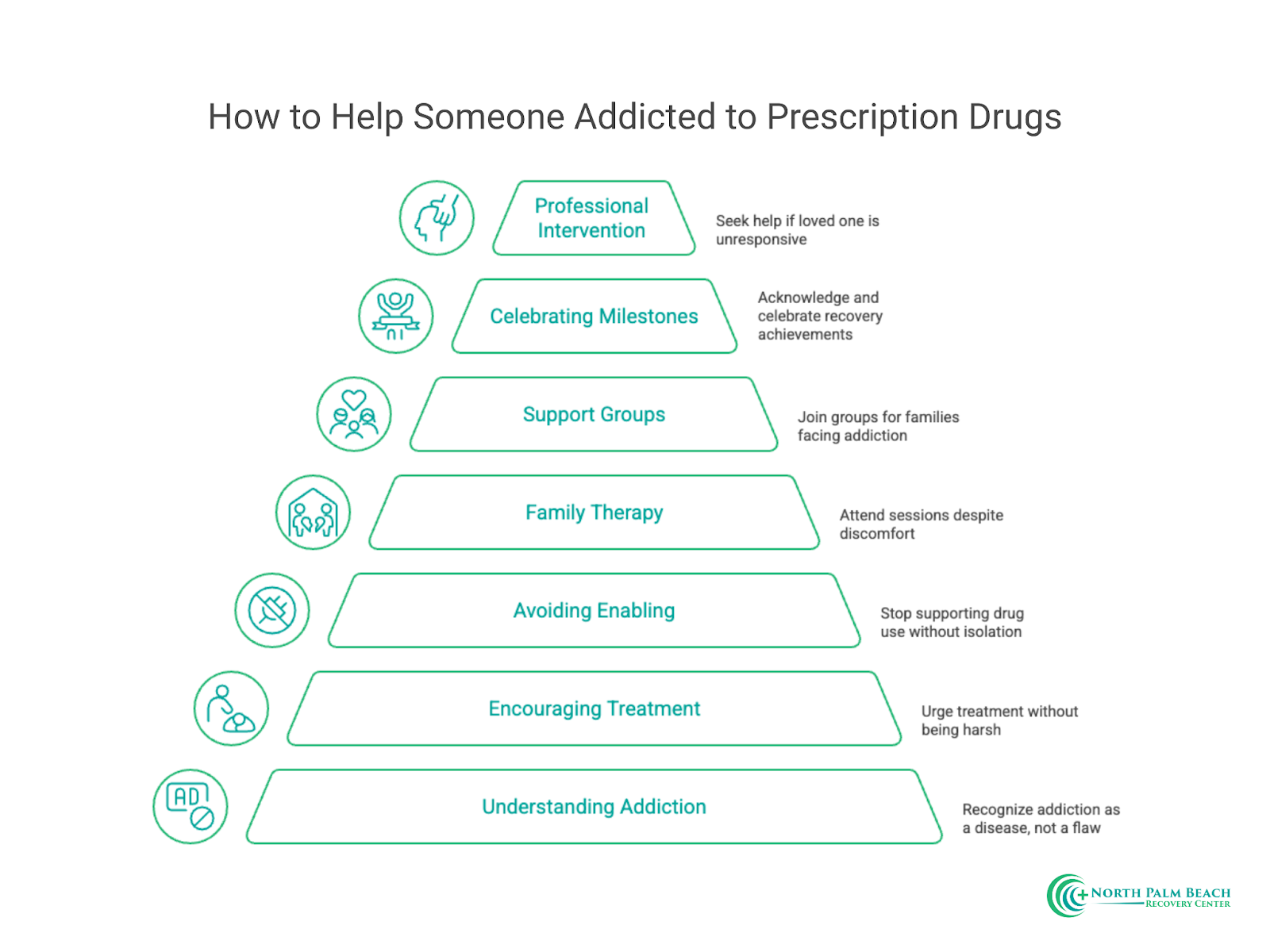
It usually starts innocently enough. Your doctor writes you a prescription. Maybe Percocet after back surgery, Xanax during a divorce, or Adderall to help you focus at work. Everything's fine at first. You're just following doctor's orders. Then things shift. You're not sure exactly when it happened, but suddenly you need those pills just to feel normal. Your family doesn't see it coming because hey, a doctor prescribed them, right? It all looks legitimate from the outside. Spotting the warning signs early can save someone's life. The good news? People beat prescription addiction all the time. With proper treatment, you can get your life back.
Prescription drug addiction is when you can't quit your pills even though you want to. Your body gets hooked on medication that was supposed to help with a real medical issue. Things go wrong when people start popping extra pills, raiding medicine cabinets, or continuing to use long after they're healed. Almost everyone begins with a legitimate prescription. This is why prescription addiction is so sneaky. Your pills came from a pharmacy, not some sketchy guy on the corner. Most folks don't realize they're in trouble until they try quitting and feel like garbage.
Prescription abuse is basically ignoring what your doctor told you to do with your pills. Maybe you're doubling up on doses, taking them every few hours instead of twice a day, using them to feel good instead of treating pain, washing them down with beer, or swiping pills from your roommate's bottle. It doesn't happen overnight. The slide from taking medicine properly to abusing it creeps up so gradually that nobody notices until things are already bad.
Three kinds of prescription drugs get abused more than others because they actually make you feel different.

Painkillers like OxyContin, Vicodin, and morphine are amazing for serious pain, but they're also incredibly addictive. Even people who follow their prescription perfectly can end up hooked.
Anxiety meds like Xanax, Valium, and Ativan make you feel relaxed and chill, so people start relying on them. Your body gets used to having them pretty quickly.
College kids and office workers pop Adderall and Ritalin to pull all-nighters or crush deadlines. Problem is, these drugs can seriously mess up your brain and body.
The sooner you catch prescription drug addiction, the easier it is to beat. And yeah, prescription drugs are definitely addictive. The warning signs don't just show up overnight.
What you'll see physically depends on what drug they're using, but watch for weird sleep patterns, dropping or gaining weight fast, bloodshot eyes or pupils that look huge, trembling hands, talking like they're drunk, and bumping into things.
On the emotional side, you might notice:
Changes in how someone acts are usually the biggest red flags for prescription drug addiction. Watch out for:
They might also steal pills from family members, can't keep up with basic stuff like work or paying bills, blow money trying to get more drugs, and start fights with people who question their pill use.
Call a professional immediately if you're seeing multiple red flags or if someone tells you they think they might have a problem with their pills. The earlier you get help, the better your chances.
Prescription drugs can mess you up in ways that go way beyond just getting addicted. Knowing what could happen helps you and your family figure out if treatment is worth it.
What happens right away depends on what you're taking, but you could stop breathing properly (pain meds are the worst for this), have a dangerous reaction if you mix pills with booze or other drugs, make dumb choices that get you hurt, overdose, or go through hell if you quit suddenly. Taking pills you shouldn't also makes you do crazy stuff like getting behind the wheel when you're messed up or putting yourself in dangerous situations because your judgment is shot.
The longer you abuse pills, the worse everything gets, and some damage never goes away. Your liver, kidneys, and brain take a beating. Eventually, you need twice as many pills just to feel normal, and your body craves them so bad that quitting seems impossible. You start feeling depressed and anxious all the time, people get sick of your crap, and you can't function at work or school anymore. Once your usual pills quit doing the trick, lots of people graduate to harder stuff.
Your chances of overdosing go way up when you abuse prescription drugs. Signs someone is overdosing:

If you mix pills with booze or other drugs, you're playing Russian roulette. Even if paramedics get there fast, you might not make it.
Getting off prescription drugs usually starts with medical detox. You can't do this safely by yourself, so you need professionals watching over you.
Your detox timeline depends on what you were taking, how long you were hooked, and how your body handles it. Most people feel like crap within a couple days, hit rock bottom around day 7, then slowly start feeling human again over the next two weeks. The mental stuff might mess with you for months. Doctors keep an eye on your heart rate and blood pressure while giving you other meds to take the edge off.
You absolutely need medical staff babysitting you through this. They're checking on you constantly, handing out comfort meds, forcing you to eat and drink water, talking you through the worst moments, and ready to act fast if you start crashing. They'll also deal with any other medical issues that could make things more complicated.
Trying to white-knuckle it at home could kill you. Withdrawal can get so bad you need IV fluids, you might seize up (Xanax withdrawal is notorious for this), or you'll cave and use again because the pain is unbearable. And you definitely won't have access to the good stuff that makes it tolerable. Professional detox centers are the safest way to start recovery.
Real treatment for prescription drug abuse tackles both your body's dependence and whatever mental crap drove you to abuse pills in the first place.
Different programs work for different people, depending on how bad things are and what your life situation looks like.
Inpatient means you live at the facility and they watch you 24/7. You get medical detox, one-on-one therapy, group sessions with other people going through the same thing, classes about addiction, activities to keep you busy, and they help you figure out how to function in the real world again. Most people stay 30, 60, or 90 days, depending on the situation.
Outpatient lets you keep your job and take care of your family while getting help. You show up for individual counseling, group meetings, family sessions, med checks if needed, and they work around your schedule. If you need more help, intensive outpatient means you come in more often.
Family and friends can make or break someone's recovery. Here's how to actually help:

Sometimes you need professionals to help stage an intervention if your loved one won't listen.
Proven therapies work on the mental side of prescription drug addiction:
Groups like Narcotics Anonymous connect you with other people who get what you're going through and call you out when you're making excuses. Family groups help your loved ones understand why you became an addict and how to deal with their own issues around it.
Other stuff can help too, like learning to meditate when you're stressed out, figuring out how to eat like a normal person again, working out to burn off anxiety, doing art or music to get your feelings out without words, and acupuncture to deal with withdrawal symptoms and stress. All this extra stuff works alongside regular therapy because addiction messes up your whole life, not just your relationship with pills.
Prescription addiction will ruin your life, but plenty of people have beaten it when they got the right kind of help. You've got to catch it before it gets too bad and actually follow through with whatever treatment plan they give you. What works for one person might not work for another. Some people need to be locked up in rehab for months, others can handle outpatient while they keep working. Either way, if you use therapies that actually work and have medical pros backing you up, you've got a real chance of staying off the pills. Getting clean isn't just about not taking drugs anymore. You've got to fix the relationships you screwed up, figure out how to deal with life's problems without getting high, and remember what it feels like to be happy without pills. If you or someone you love is addicted to prescription drugs, stop making excuses and get help now. Call North Palm Beach Recovery Center today and find out what we can do for you.
Lorem ipsum dolor sit amet consectetur adipiscing eli mattis sit phasellus mollis sit aliquam sit nullam neque ultrices.